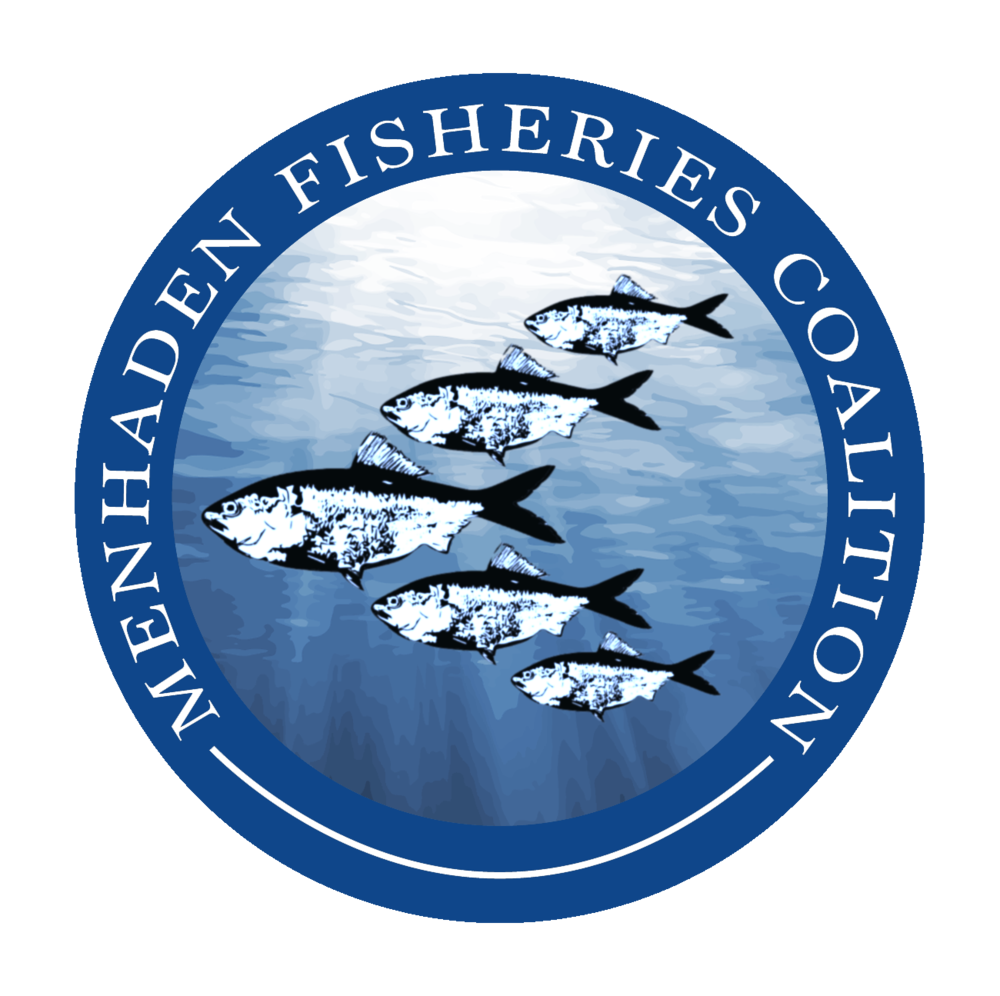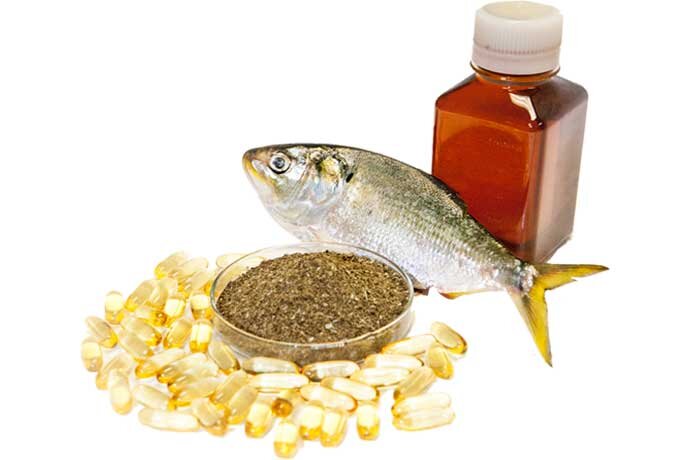MENHADEN & NUTRITION
Menhaden are a key source of omega-3 fatty acids, nutrients shown to be essential for regular and healthy body functions and growth in both humans and animals. Omega-3s also help reduce inflammation and lower the risk of serious, prevalent chronic diseases such as heart disease. The American diet typically does not include enough omega-3s, and humans and pets alike obtain omega-3s exclusively from dietary, not internal, sources. Foods enriched with menhaden oils containing omega-3s help fill that nutritional gap.
The two key types of omega-3 fatty acids, EPA and DHA, are almost exclusively derived from marine sources. Of the top landed fish species in the United States, menhaden provide by far the most EPA and DHA. 2013 menhaden landings brought nearly 34 million pounds of EPA and DHA, more than twice as much as the second best source, salmon, which brought about 15.4 million pounds of the nutrients. According to a recent report by the USDA, fish oil from menhaden is also the top source of DPA, surpassing all other fish and meat.
DPA is an intermediary of EPA and DHA, and several studies suggest that DPA contributes to cardiovascular, cognitive, and neurological health. An imbalance or lack of omega-3s can lead to serious health issues. Incorporating fish oils into a balanced diet can help reduce the risk of heart disease, pain from rheumatoid arthritis, and depression.
EPA and DHA in menhaden and other species
Healthy Product, Healthy Pets:
Just as menhaden provides many health benefits to humans, pets that consume food fortified with nutrients from menhaden enjoy many health benefits as well. Pet food containing fishmeal ingredients may provide enhanced memory and other cognitive functions, maintain reproductive health, support strong bones and healthy joints, promote skin and coat health, prevent arthritic diseases, and even increase the lifespan of our household companions. All together, it has been shown that fish meal contained in pet foods has a 17 percent higher performance in protein digestibility, allowing pets to absorb more nutritional benefits from their food.
Marine Based Ingredients in Aquaculture:
In the wild, carnivorous fish like salmon eat other fish to get omega-3 fatty acids in their diet, which are not produced by the fish without external sources. Fish oil from wild menhaden allows aquaculture feed to mimic their natural diets and produce healthier farmed seafood.
The Benefits of Marine Based Ingredients
According to NOAA, fish oil and fish meal provide almost a perfect balance of the approximately 40 essential nutrients that animals need to be healthy and grow. Marine ingredients fortify farmed seafood with the very nutritional elements that make seafood healthy for humans.
As stated by NOAA and the USDA in their joint publication, “The Future of Aquafeeds,” fish used to make pellet feed will remain in a constant, limited, and sustainable supply, but the global population and demand for fish will continue to rise. To fill this global demand and maximize the use of this sustainably harvested fishmeal and fish oil, research for alternative ingredients, often lead by the marine ingredients industries, such as the International Fishmeal and Fish Oil Organization, is ongoing.
Resources:
Learn more about Atlantic Menhaden on the ASMFC website here
View the SEDAR Atlantic menhaden stock assessment report here
See the Virginia Institute of Marine Science menhaden report in Chesapeake Bay here
See the latest GSMFC Stock Assessment Report for Gulf menhaden here
Read more about the Gulf menhaden fishery from Louisiana Sportsman magazine here
Review the GSMFC MAC’s “Most Important Fish in the Sea” meeting minutes here
Learn more about the health benefits of adding fish to a balanced diet here
Read more about the nutritive value of omega-3 fatty acids here
View more information about the impact of DPA on human and animal health here
Commonly Used Menhaden-Related Acronyms:
ASMFC – Atlantic States Marine Fisheries Commission
CIE – Center for Independent Experts
DHA – Docosahexaenoic acid
DPA – Docosapentaenoic acid
EPA – Eicosapentaenoic acid
GSMFC – Gulf States Marine Fisheries Commission
IFFO – International Fishmeal and Fish Oil Organization
MAC – Menhaden Advisory Committee
NMFS – National Marine Fisheries Service



